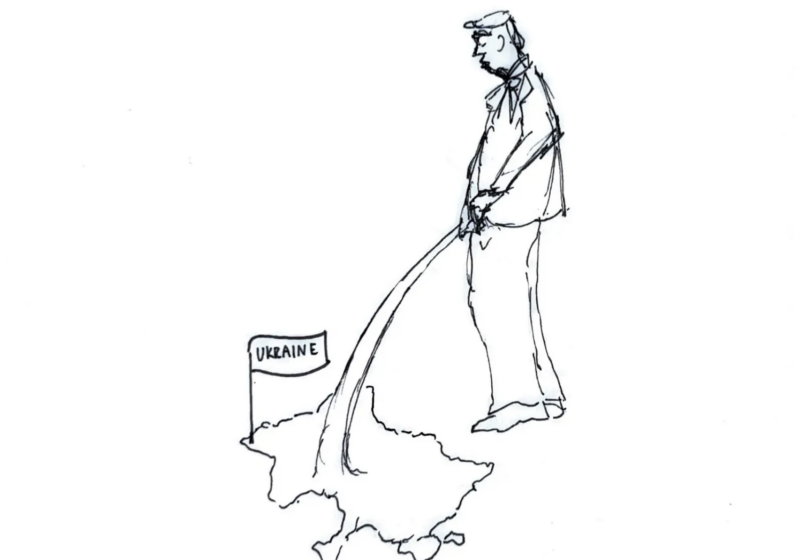When I was younger, I did not know much about the “Star Wars” franchise.
I had never seen any of the movies, and so I didn’t know the characters, the epic moments, or even what “I am your father” meant. The one thing I knew about Star Wars was that thunderous piece of movie score — Darth Vader’s theme, “The Imperial March” (DUN-DUN-DUN, DUH DUH-DUN, DUH DUH-DUN). John Williams is the brilliant composer behind that masterpiece — and it is a masterpiece because all at once, you are reminded of Darth Vader himself, stomping into a room, scaring the living bejeezus out of everyone.
A movie score is meant to accompany the visuals in a film, whether that’s reflecting the emotion of the scene, introducing and coloring the personality of a new character, or helping the director evoke a certain mood in the viewers (like getting them amped up). The beauty of a movie score is that when it’s operating at its best, it perfectly embodies the film.
For example, with the “Harry Potter” movies (scored by John Williams in the beginning, Alexandre Desplat in the later films), when you hears the classic “Hedwig’s Theme,” the movies come rushing back — the drama, the magic, the lightning-shaped scar. Movie scores tug at our heartstrings. They become a symbol of our emotional attachment to cinema. So I thought I’d spend today honoring some of my favorite movie score composers.
When talking about movie score composers, Williams must come up. He’s the brain behind so many iconic movie scores, including, along with those already mentioned, “Indiana Jones,” “Jaws,” “Schindler’s List,” and many others. His scores are undeniably for the big screen — they seem to be classics from the first moment you hear them.
Desplat took over from Williams for the later “Harry Potter” movies. This seemed appropriate, since the tone shifted from light-hearted magical hijinks to somber, life-threatening adventures. My favorite piece from him is “Lily’s Theme,” which represents Lily’s love for her son, and her sacrifice as a result of that love. If you like “Harry Potter,” I recommend listening to it.
Michael Giacchino is another staple name in the movie score world. His themes are light-hearted, brassy, and bold. His scores make you want to get up and move. He’s known for his scoring of “The Incredibles,” “Ratatouille,” and the new “Star Trek” films. He was discovered by J.J. Abrams, which is why he’s often the composer for Abrams films. Both love creating fun, heart-pounding art that makes you smile.
I think Giacchino’s best song to date is “Married Life” from Pixar’s “Up.” And yes, it’s the song that plays during the dialogue-less opening where you see Carl and Ellie’s beautiful — and ultimately heartbreaking — marriage. If you, reader, listen to “Married Life” and don’t end up crying, send me an email. Actually, since you probably don’t have a heart, I’m a little scared so let’s just not communicate.
Hans Zimmer is another movie score composer often associated with a certain director. In his case, it’s Christopher Nolan. Zimmer is famous for the ominous wall of sound he created for Nolan’s “Inception,” which can serve as quite an epic alarm clock sound. After that film, that distinct ground-shaking noise has come up in countless other modern scores.
But that sound is just a part of his style. Since Zimmer works with Nolan, his most notable scores are for Nolan movies, like “Interstellar,” “Dunkirk,” and the “Dark Knight” trilogy. His scores are slow-burners. He starts from a basic, evocative tonal place and slowly adds elements that elevate the mood and lead up to a startling crescendo that is immensely satisfying. His scores have a strong, easy-to-hear rhythm, and he relies less on classic orchestral motifs but instead goes for a surround-sound aesthetic. His music seems to slowly wrap around and envelop your senses.
Zimmer was the composer that got me into scores, so he holds a special place in my heart. I highly recommend listening to “S.T.A.Y” from the “Interstellar” soundtrack if you like the slow builds, “Drink Up Me Hearties Yo” from “Pirates of the Caribbean” (arguably his most iconic score). But my absolute favorite of his work is in the “Dark Knight” trilogy — Batman’s significance is perfectly represented in the piece “Why Do We Fall?” from “The Dark Knight Rises.”
I’d be remiss if I didn’t mention people from television, like Ramin Djwadi, who composes for “Game of Thrones” and “Westworld.” He’s the one responsible for that insanely catchy opening sequence to “Game of Thrones.” If you can’t get that theme out of your head I suggest listening to “Winter Is Here” — it is a much gentler, sweeter evocation of the main theme. I also want to mention Agnes Obel, whom I stumbled upon after loving her piece “September Song,” which recurs often in the first season of “Big Little Lies.” And finally, Joe Hisaishi, the composer for many Studio Ghibli films like “Spirited Away.”
If you, reader, really like movies or really like music, I recommend looking into movie score. Start with movies you love — you’ll find that you already know the score, and from there the gateways to this fantastic genre open. And for those of you that already love this genre — send some recommendations my way. Happy listening!





